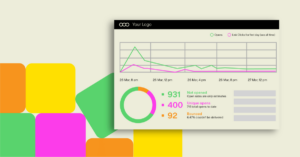When it comes to effective marketing in the B2B channel, manufacturers and distributors are tasked with enticing their target market demographic. Appealing to today’s B2B buyer, however, has become increasingly difficult as the age of technology and information have raised the bar for product, company, and purchasing expectations. The force behind this change? The increasing number of millennials in the workforce.
According to Forrester Research’s principle channel analyst Jay McBain:
-
- 40% of channel owners plan on retiring by 2024; and
- Millennials will comprise 75% of the B2B market by 2024.
This changing target market demographic brings its challenges, especially for those businesses who have yet to breach the digital world of sales and marketing. The key to standing out in the evolving channel landscape lies in adapting marketing practices to the millennial buyer. Let’s take a look at what characterizes the millennial buyer, and what businesses can do to influence their purchasing decisions.
Today’s Target Market Demographic: The Millennial
Millennials, born between the years of 1980 and 1996, are identified as the first generation of children to be raised on the internet. Referred to as “digital natives,” they embrace the endless information that the internet offers, utilizing its capabilities for both work and social recreation. With a single google search producing trillions of results by the second, and online retailers sporting the common “single click-to-purchase,” millennials are accustomed to instant gratification and ease.
When it comes to making a purchase in the B2B sector, 73% of those involved in the research and decision making are millennials, with over one third identified as the sole decision maker. So, what exactly do manufacturers and distributors need to provide in B2B commerce in order to incentivize millennials?
The Digital Experience
In order for your product to be considered for purchase, B2B businesses must display their brand value where millennials are searching: the internet. This generation values their independent research, and it has been found that business buyers do not contact suppliers directly until 57% of the purchase process is complete. This means the information your company provides via online marketing plays a much larger role in the sales decision than a sales associate, and investing in an online platform is crucial to staying in the running.
The digital experience doesn’t stop after the decision to purchase. In order to keep your millennial customers, you’ll want to give them digital options to continue to connect with your brand with ease.
Omnichannel Communication
With 86% of adults ages 18-29 in possession of a smartphone, the world of the internet and instant connection rests in the millennial back pocket. They are in constant communication for both business and personal interactions, including email, SMS, and push notifications. Throw in the added element of social media outlets, with 85% of millennials using this means of connection as a research and discovery tool, and businesses without these digital capabilities are simply forgotten. On the flipside, the more digital avenues that you provide for customers to interact with your brand, the wider your reach, and the more personalized the experience becomes as customers can choose their method of contact.
Personalized Value Ads
When it comes to both your brand and your sales team, today’s B2B buyers are looking for a trusted advisor. A study found that millennials “respond favorably to salespeople who evoke feelings of trust, compatibility, and connectedness, in contrast to buyers 50 and older who focus more on business benefits and deliverables.”
What does this mean for B2B brands? Not only are they expected to sell an impeccable product, but their company as a whole is expected to meet more subjective values that fosters a personalized relationship with their clients. This includes:
-
- transparency regarding product information;
- ease of connection and quality customer service;
- social contribution, or how a company gives back to its community; and
- elements of fun and perks that only your business provides.
The Use of Incentives in Targeting Millennials
In order to properly market to this generation, it is clear that B2B businesses must cultivate an online presence that allows them to stand out. But even more so, B2B companies must take active steps to better understand, market, and connect with their target market demographic.
While a transition of this nature requires an investment, technology’s ability to collect valuable customer data will make it worth your while. With the help of an incentive program, targeted marketing, omnichannel communication, and personalized value ads have never been easier to implement.
With an online rewards platform, the digital experience is taken to the next level as customers and channel partners are valued and inspired, earning rewards while simultaneously interacting with your brand. With the help of advanced communication techniques, such as the loyalty program mobile app, your brand and featured product stays top of mind and at the tips of your program participants’ fingers.
Incentive travel programs for top purchasers not only inspires sales, it appeals to the adventurous, social aspects of the millennial generation. And finally, through the use of incentive software, data collection through program performance tracking and easy integration with your existing CRM platforms will help you measure exactly how your marketing efforts are being perceived, and how you can adjust for a greater impact.
Ready to Engage Your Target Market Demographic?
Check out more of Extu’s research on millennials in the B2B sector and how an incentive program can help your business stand out.
- Motivating Millennials to Increase B2B Sales
- Motivating Millennials in the Workplace to Maximize Growth



